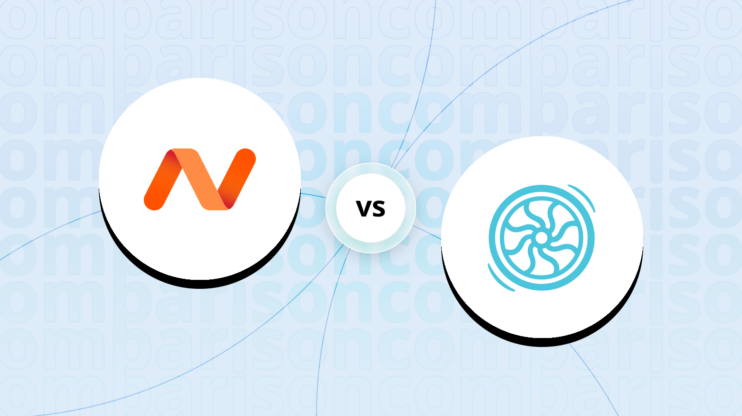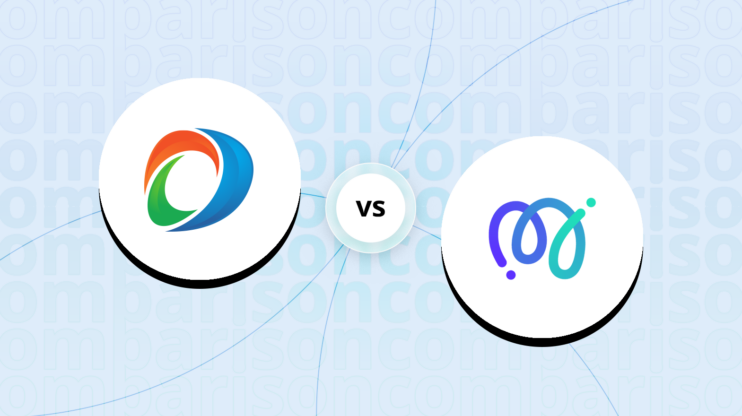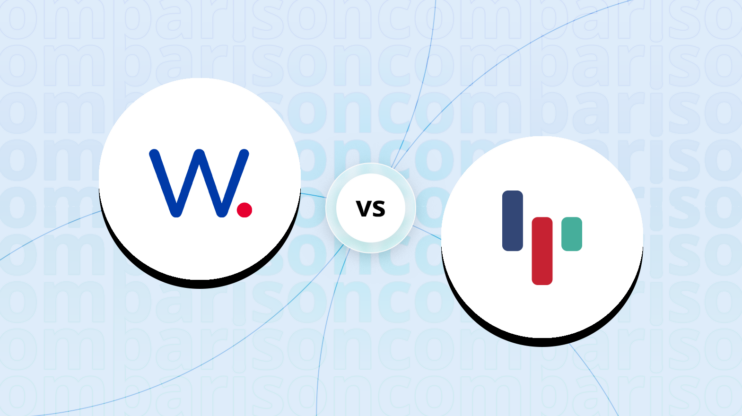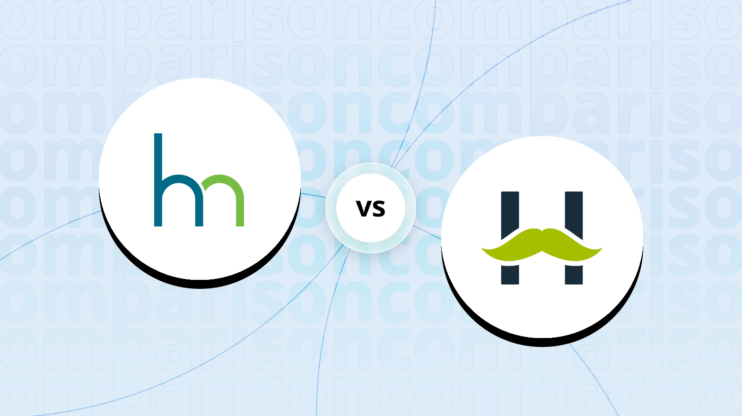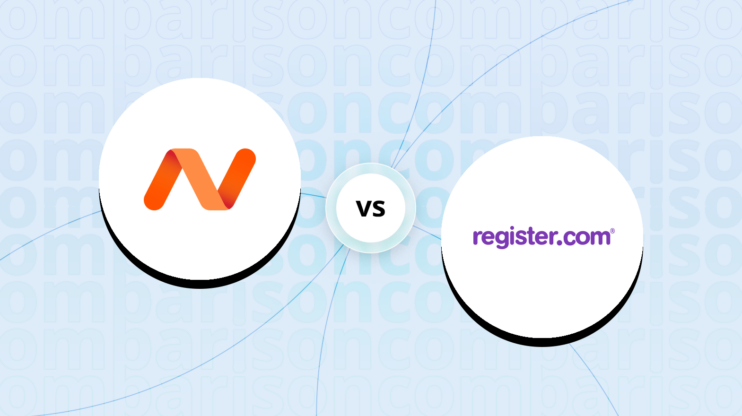Pagely vs WestHost: Final verdict
Looking over Pagely vs. Westhost, it’s clear why both hosts are so popular. They have both hosted millions of
websites that run on WordPress for decades, building up a loyal customer base.
-
Pagely (Overall grade: 8.1)
stands out for its exceptional uptime, performance, and security, making it an excellent choice for businesses with high-traffic websites or complex requirements. It excels in providing advanced features such as managed DevOps support, SSH, and GIT access, though at a significantly higher cost. The absence of shared and cloud hosting limits its appeal to users looking for diverse hosting options. Despite its high price, the premium features and outstanding customer support make it worth the investment for businesses needing top-tier reliability and scalability.
Westhost (Overall grade: 7.8)
shines with affordability and simplicity, offering a range of hosting options including shared, cloud, and VPS hosting. It’s particularly suitable for beginners and small businesses due to features such as free SSL certificates, a free domain with annual plans, and a straightforward control panel. While its speed and advanced security features may not match Pagely’s, the user-friendly website builder and budget-friendly plans provide excellent value. Though it falls short in high-end performance, Westhost remains a solid choice for those needing essential services without compromising on cost.
 Overall grade:8.1 |
 Overall grade:7.8 |
|
|---|---|---|
| Uptime and Availability | 9.5 | 7.8 |
| Hosting Performance | 8.8 | 8.3 |
| Hosting Security | 9.2 | 8.0 |
| Price | 7.4 | 8.5 |
| Hosting Features | 4.6 | 6.5 |
| Ease Of Setup | 8.2 | 8.2 |
| User Management | 8.4 | 7.2 |
| Customer Support | 8.9 | 7.7 |
| User feedback | 4.9/5 | 3/5 |
Hosting types offered
Both platforms provide a variety of hosting types, each designed to meet the different needs of users.
 |
 |
|
|---|---|---|
| Shared hosting | ||
| Cloud hosting | ||
| WordPress hosting | ||
| Ecommerce hosting | ||
| VPS hosting | ||
| Dedicated hosting |
Although both offer a variety of hosting plans tailored to different needs, in
certain cases, one platform may prove to be more suitable.
Detailed comparison
Uptime and availability
Evaluates the average uptime statistics, uptime guarantee and overall availability of the hosting
provider
Score Components:
- Uptime percentage (30%): evaluates the uptime statistics in given period of time
- Uptime guarantee (20%): Assesses if the platform offers an uptime guarantee and
whether the actual uptime matches the promised guarantee. - General performance (25%): Evaluates how fast is the average response time and overall
it’s stability. - Responsiveness (10%): Adaptability to different devices and screen sizes.
- Availability (25%): Reflects the total downtime and number of outages.
 9.5
9.5
 7.8
7.8
🏆 Winner Pagely: Exceptional uptime and availability with advanced high availability architecture.

Pagely guarantees an impressive uptime of 99.99%, supported by a high availability architecture that includes separate availability zones and multi-region redundancy. With 14 global data centers, automatic load balancing, and 24/7 uptime monitoring, Pagely ensures continuous service with an average response time of 211ms and the capability to handle 1,965 requests per second. The performance plans offer flexible configurations and managed DevOps support, making Pagely a leader in hosting reliability.

WestHost, while reliable, does not offer an explicit uptime guarantee but delivered an impressive 100% uptime over a one-month period. Their data centers feature RAID-10 redundancy and strong security measures across various global locations. Despite this, their speed performance needs improvement, with a GTmetrix rating of C and a load time of 5.2 seconds, which are below industry-leading standards.
Which one has better hosting performance?
Score Components:
- Hosting speed (30%): This includes SSD quality, Load times, PageSpeed score ranges,
additional information on website speed, built-in plugins for performance enhancement, available caching
methods, and CPU/RAM options - CDN (20%): Considers whether CDN is available or not, whether it’s free or paid, and
the quality of the CDN service - Available data centers (30%): Evaluates the number of data centers and their locations
globally. - Scalibility (20%): Looks at whether elastic scaling is available, the process required
to scale (manual upgrade vs. automatic scaling), the presence of dedicated servers, and the costs
associated with scaling.
 8.8
8.8
 8.3
8.3
🏆 Winner
Pagely: High-performance hosting with advanced features and exceptional support.
Pagely and Westhost offer distinct hosting solutions that cater to different customer needs. Pagely stands out with its high-performance configurations powered by Amazon AWS, offering flexible setups and decoupled database resources. Their performance-oriented plans ensure SSD storage, PHP workers without cap, and an extensive list of additional features, including advanced caching and CDN technology. Westhost, on the other hand, emphasizes affordability and accessibility, with a strong uptime guarantee, free SSL certificates, and a global network of data centers. Both providers offer comprehensive support, but Pagely’s managed DevOps support is more tailored for sophisticated, mission-critical applications.
Website Speed
Pagely provides superior website speed with its investment in high-end hardware and absence of PHP worker limits. The integration of Amazon AWS infrastructure along with superior caching mechanisms ensures minimal load times and excellent page speed scores. Westhost also delivers competitive speed with SSD drives and an efficient content delivery network (CDN) in higher-tier plans. However, Pagely’s use of advanced technology and managed services offers a slight edge in ensuring consistently fast website performance.
Scalability
Pagely offers flexible scalability options, including custom vCPU and RAM configurations in their higher plans, with elastic scaling achieved through their decoupled and dedicated database resources. Their high availability setups and the enterprise-class hosting come with premium price tags but promise robust performance, starting at $2,500 per month. Westhost also provides scalable solutions, notably with their VPS packages, though these require upgrading plans rather than automatic scaling. The affordability of Westhost’s scaling options is worth mentioning, but it doesn’t match the advanced capabilities and costing of Pagely for large-scale, complex deployments.
Which one has better security features?
and regulatory requirements
Score Components:
- Technical security measures (40%): This includes encryption, firewalls, DDoS
protection, secure configurations, server monitoring, access control and availability of security addons
(e.g Sitelock security). - Operational security measures (30%): Encompasses data privacy, backups and data
redundancy. - Compliance and certifications (20%): Adherence to legal and regulatory requirements
(e.g., GDPR, HIPAA) and possession of certifications (e.g., ISO 27001, SOC 2). - Business and reliability (10%): Factors in the provider’s reputation, uptime
guarantees, and customer support.
 9.2
9.2
 8.0
8.0
🏆 Winner Pagely: Pagely offers extensive security features and compliance measures, making it a robust choice for secure WordPress hosting.
Both Pagely and Westhost, have notable differences in their approaches to technical and operational security, as well as in their compliance with regulations.
Technical security measures:
Pagely and Westhost both provide strong SSL certificate options, with Pagely supporting Let’s Encrypt and custom certificates, while Westhost provides unlimited free SSL certificates through Let’s Encrypt. Pagely uses advanced DDoS protection with AWS Shield and boasts a proprietary web application firewall, whereas Westhost includes SiteLock for malware protection. Pagely employs real-time malware scanning, while Westhost offers virus protection as part of their built-in security features. Both providers offer comprehensive anti-spam measures and secure FTP access, but Pagely also integrates advanced brute force protection techniques.
Operational security measures:
Pagely’s security operations include customizable two-factor authentication (2FA) and isolated resource environments for clients, enhancing protection against breaches. It provides 24/7 uptime monitoring and incident response teams, ensuring continuous system health oversight. Westhost ensures 99.9% uptime with round-the-clock support and offers managed security clean-up services for a fee. While both hosts provide robust backup solutions and access to raw server logs, Pagely’s holistic security infrastructure through PressARMOR ensures more comprehensive threat management.
Compliance and certifications:
Pagely leads in compliance with SOC 2 Type I and II, GDPR, and PCI-DSS certifications, ensuring rigorous data protection. Westhost has GDPR compliance under the EU-U.S. Privacy Shield framework but lacks specific PCI compliance details. HIPAA compliance is not specified for either provider.
 |
 |
|
|---|---|---|
SSL certificate |
Let’s Encrypt & Custom |
Unlimited Free SSL Certificates |
Additional security features |
Extensive, including PressARMOR |
SiteLock, Fraud, Virus & Spam Protection |
PHP versions |
7.4+ supported with long-term solutions |
5.3 to 8.2 |
GDPR compliance |
Yes |
Privacy Shield Framework |
HIPAA compliance |
Not specified |
Not specified |
PCI compliance |
Yes |
Not specified |
Hosting features
Score Components:
- Domains (20%): Assesses the availability of a free domain, domain purchase options, and
pricing - Email (15%): Considers if the provider offers full email hosting, or is reselling
third-party service, and if the email is only transactional or not - Website builder (15%): Checks if website builder is available, and it’s user
friendliness and overall the level of customization allowed. - Staging environment (20%): Determines if a staging environment is available, allowing
for testing changes before going live. - FTP & SFTP accounts (10%): Evaluates if and how easily users can access FTP and
SFTP accounts - Git and SSH access (20%): Assess whether Git is integrated into the hosting service and
if SSH access is provided
 4.6
4.6
 6.5
6.5
🏆 Winner: Westhost: An affordable and versatile hosting option with a wide array of user-friendly features.
When comparing Pagely and Westhost, each has its own strengths tailored to specific types of users. Pagely, designed for performance and reliability, makes use of AWS infrastructure and offers advanced features like staging environments, robust security measures, and managed WordPress upgrades. These features make Pagely an ideal choice for businesses looking for high-performance and reliable WordPress hosting, though its starting price is significantly higher. Pagely also boasts features like SSH and GIT access, making it developer-friendly and well-suited for complex needs.
On the other hand, Westhost provides an extremely budget-friendly option with plans starting at just $1 per month. Westhost offers unlimited FTP users, free migration, a free domain with annual plans, and a straightforward control panel (StackCP), ideal for beginners and small businesses. Additionally, Westhost’s one-click application installer and free SSL certificates add extra value for users looking for ease of use and quick setup. The unlimited free automatic SSL certificates and 30-day money-back guarantee are highlights that will appeal to users who need a cost-effective and risk-free entry into web hosting.
 |
 |
|
|---|---|---|
Free domain |
No |
Yes, with annual plan |
Free SSL |
Yes |
Yes |
Email hosting |
No |
Yes |
Website builder |
No |
Yes |
Staging environment |
Yes |
No |
FTP & SFTP accounts |
Yes |
Yes |
Git and SSH access |
Yes |
Yes |
Free backup |
Yes |
Yes |
Money back guarantee |
No |
Yes, 30 days |
a location.
As a result in rare cases the features mentioned here can differ from the ones you see on their websites.
Both providers support a range of users from beginners to experts with user-friendly website builders and WordPress staging areas. However, in terms of developer tools, both Pagely and Westhost offer robust options including SSH access, support for multiple programming languages, and Git for version control, thus appealing to developers looking for advanced capabilities.
Email services:
Pagely does not include standard email hosting, focusing primarily on high-performance WordPress hosting features. In contrast, Westhost provides comprehensive email services with personalized mailboxes, auto-responders, and webmail interfaces. This difference makes Westhost a more compelling choice for users who need integrated email solutions. Pagely’s support for custom email solutions often requires integration with third-party providers like Google Workspace, adding extra steps and potential costs for users.
Price
Score Components:
- Plan value (40%): What each pricing tier offers.
- Transparency and clarity (30%): Clearness of pricing structures.
- Flexibility of plans (20%): Range of options to suit different budgets.
- Hidden costs (10%): Additional expenses not included in the plan.
 7.4
7.4
 8.5
8.5
🏆 Winner Westhost:Affordable yet comprehensive hosting plans catering to various needs.
Evaluating the pricing of plans among various hosting providers can be complex due to their differing pricing and renewal strategies. Additionally, certain plans require annual commitments, which adds to the difficulty of making comparisons. The prices listed are based on monthly commitments; plans requiring annual commitments are indicated. Additionally, although some providers offer identical plans for WordPress and shared hosting, we have created separate tables for each to enhance clarity.
Pagely offers premium hosting plans with a focus on high performance and support, but its pricing is significantly higher compared to Westhost. Westhost provides a more affordable range with abundant features suitable for individuals and small businesses. While Pagely’s plans cater more towards enterprises with high demands, Westhost offers clear value for price, especially for those looking for essential hosting services without the hefty price tag.
 |
 |
|---|---|
|
Enterprise Class WordPress Hosting$2500/mo
Multi-region redundancy, enhanced SLAs, personalized technical account management, bespoke deployments, compliance ready. Value for price:6.0
|
Premier$22.00/mo
Unlimited websites, 150GB storage, unmetered bandwidth, free domain, unlimited subdomains, SiteLock, backups, DV SSL Certificate. Value for price:9.0
|
|
Business Class WordPress Hosting$499/mo
Developer friendly tools, shell access, CI/CD support, standard SLA, amazing support. Value for price:7.5
|
Professional$16.00/mo
25 websites, 75GB storage, unmetered bandwidth, free domain, unlimited subdomains, backups, CDN. Value for price:8.5
|
 |
 |
|---|---|
|
Developer 1$199/mo
2 vCPU (burstable), 2 GB RAM, 30 GB SSD storage, no cap on PHP workers, decoupled database resources, managed DevOps and support. Value for price:7.0
|
Essential$5.00/mo
1 website, 25GB storage, free domain, unlimited bandwidth, backups, unlimited Let’s Encrypt SSL certificates Value for price:8.5
|
|
Developer 2$299/mo
2 vCPU (burstable), 4 GB RAM, 30 GB SSD storage, no cap on PHP workers, decoupled database resources, managed DevOps and support. Value for price:7.0
|
Personal$12.00/mo
10 websites, 50GB storage, unmetered bandwidth, free domain, unlimited SSL certificates, backups, CDN. Value for price:8.0
|
 |
 |
|---|---|
|
Performance Lite$375/mo
2 vCPU, 4 GB RAM, 50 GB SSD storage, no cap on PHP workers, decoupled database resources, managed DevOps and support. Value for price:7.0
|
VPS1GB$8.00/mo
1GB RAM, 25GB SSD disk, 3TB bandwidth, 4 Core. Value for price:8.5
|
|
Performance$499/mo
2 vCPU, 4 GB RAM, 50 GB SSD storage, no cap on PHP workers, decoupled database resources, managed DevOps and support. Value for price:7.0
|
VPS2GB$16.00/mo
2GB RAM, 50GB SSD disk, 4TB bandwidth, 4 Core. Value for price:8.0
|
|
Performance+$999/mo
4 vCPU, 8 GB RAM, 50 GB SSD storage, no cap on PHP workers, decoupled database resources, managed DevOps and support. Value for price:7.0
|
VPS4GB$32.00/mo
4GB RAM, 100GB SSD disk, 6TB bandwidth, 4 Core. Value for price:8.0
|
|
Scale$2500/mo
Custom CPU, custom RAM, custom SSD storage, no cap on PHP workers, dedicated database resources, managed DevOps and support. Value for price:6.5
|
VPS8GB$64.00/mo
8GB RAM, 200GB SSD disk, 8TB bandwidth, 4 Core. Value for price:8.0
|
|
N/A
|
VPS16GB$128.00/mo
16GB RAM, 400GB SSD disk, 8TB bandwidth, 4 Core. Value for price:7.5
|
Enterprise plans
Pagely’s enterprise plans are geared towards high-demand environments with enhanced SLAs, multi-region redundancy, and personalized technical management. These features make Pagely suitable for companies looking for premium performance and support at a higher cost. Comparatively, Westhost offers excellent value for enterprises needing multi-website support, extensive storage, and advanced security features at a much lower cost.
Pagely vs WestHost: Ease of setup
platform.
Score Components:
- Site migration (25%): Assesses whether the provider offers tools for site migration,
either automated or manual, and whether these services are free or require a fee. - Admin panel usability (35%): Evaluates the type of admin panel provided, such as the
standard cPanel or a custom solution, focusing on its accessibility and user-friendliness for both
technical and non-technical users. - Setup features (20%): Examines the availability and ease of use of various setup
features, including FTP accounts, file managers, email account setup, PHPMyAdmin, and easy CDN
configuration. - Help center quality (20%): Measures the quality and accessibility of the provider’s
help center resources, including articles and tutorials.
 8.2
8.2
 8.2
8.2
🏆 Winner Westhost: Westhost offers an exceptionally user-friendly website builder that suits users of all technical levels.
Pagely and Westhost feature distinct admin panels tailored to different user types. Pagely offers managed WordPress hosting, requiring users to navigate through a custom admin panel designed for more advanced functionalities. This panel is well-organized with clear access to critical features, making it beneficial for users with moderate to advanced technical skills. On the other hand, Westhost provides a more traditional cPanel interface, known for its accessibility and user-friendliness. cPanel is widely recognized for its intuitive layout and ease of use, making it suitable for both beginners and experienced users. Westhost’s inclusion of one-click app installs further streamlines the setup process, allowing users to get their websites up and running quickly without having to dig through complex configurations.

For users focused on ease of setup, Westhost’s admin panel may be more appealing due to its straightforward design and ease of navigation. The platform enables quick website creation with its user-friendly website builder, making it an attractive option for those without technical expertise. Pagely, with its specialized features, appeals more to users who require powerful tools for managing larger, more complex sites. Both platforms ensure their users can access essential features seamlessly but cater to different levels of technical proficiency.
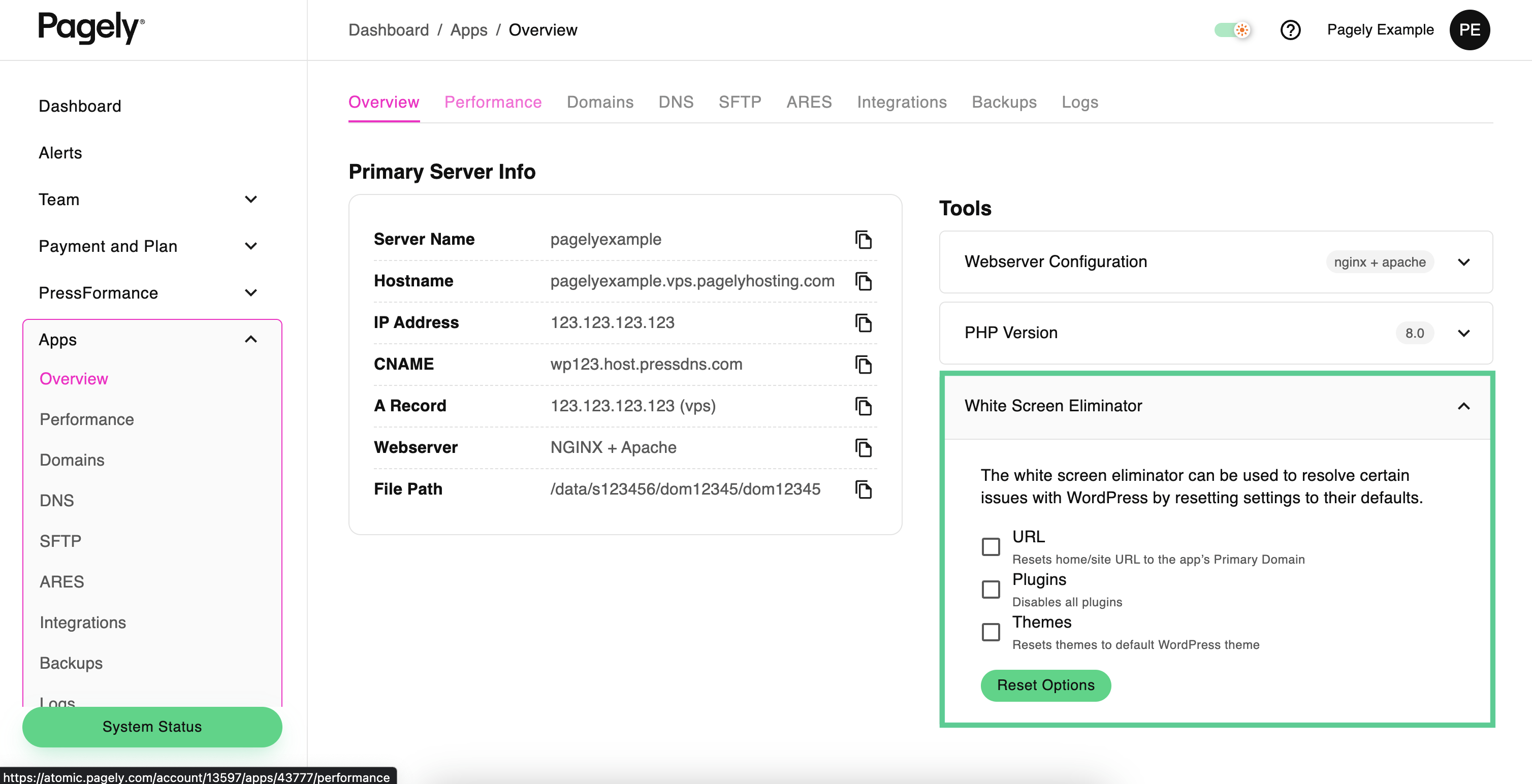
Both Pagely and Westhost offer tools for site migration but take different approaches. Pagely provides detailed instructions and support for manual migration processes, ensuring users have guidance through every step. This method requires some technical know-how but offers comprehensive assistance to cover all aspects of migration. Westhost’s Migration Center comes equipped with tools and guides, facilitating both automated and manual migrations. The automated tools are especially beneficial for users seeking a hassle-free transition between hosting providers. Both platforms offer these migration services for free, enhancing their appeal.
Pagely’s help center is extensive with categories covering everything from WordPress basics to advanced security measures. The resources are thorough, making it easier for users to self-troubleshoot and manage their sites effectively. Westhost’s knowledge base is equally detailed, addressing a broader range of topics such as domain management, email hosting, and dedicated servers. The 24/7 support through live chat and tickets ensures assistance is readily available. Each platform’s help center is designed to provide in-depth knowledge and quick resolutions, catering to various user needs.
The platforms provide extensive knowledge bases filled with guides, how-to articles, and instructional content. Westhost offers a wide range of resources alongside 24/7 chat and phone support. Pagely also boasts a detailed help center with an intuitive search function and around-the-clock support via live chat, phone, and ticketing, ensuring comprehensive user support.
User management
accessibility.
Score Components:
- Role customization (40%): Flexibility in creating and defining user roles and
permissions. - Ease of management (30%): User interface and tools for managing users.
- Access control (20%): Effectiveness of access control measures for different user
levels. - Scalability (10%): Ability to manage a growing number of users efficiently.
 8.4
8.4
 7.2
7.2
🏆 Winner Pagely: Pagely offers a comprehensive user role and permission system that provides a high degree of flexibility. It supports seven distinct user roles, each with a detailed set of permissions. The roles range from Account Owner, with full administrative capabilities, to App-Only-Minimal, which offers limited permissions. WestHost, in contrast, primarily focuses on two types of user accounts—E-mail and FTP users—with basic permissions and less granulation. While Pagely allows administrators to define varied and specific roles, WestHost’s approach is more straightforward and suited to less complex user management needs.
Pagely’s user interface for managing users is highly functional, allowing admins to effortlessly manage roles and permissions through a unified dashboard. The system also integrates 2-factor authentication to increase security. WestHost uses a more basic interface within its Site Manager, providing essential tools for creating, editing, and deleting users. WestHost includes a step-by-step video tutorial to guide users through these processes, making it accessible for beginners but limiting in advanced controls.
When it comes to access control and scaling user management, Pagely supports a wider range of roles and more detailed permissions, which is beneficial for businesses that require granular control over user actions. The ability to enforce 2-factor authentication and manage site-level permissions makes Pagely suitable for larger organizations. WestHost, while effective for small to mid-sized operations, may struggle with the demands of larger teams due to its limited role differentiation and basic access control features.
Pagely user roles table:
| Role | Description | Access highlights |
|---|---|---|
| Account Owner | Manages entire account and high-level administrative tasks | Full permissions including account and site management, and server access |
| Super-Admin | Administrative tasks and user management | Full permissions minus creating Admin users |
| Sub-Admin | Mid-level administrative capabilities | Comprehensive permissions excluding billing/tech user management |
| Tech | Technical support tasks | Site management, server access, and 2FA management |
| Billing | Handles billing-related tasks | SFTP access, backups, and account authentication management |
| App-Only | Application-specific tasks | Limited to SFTP and backup management |
| App-Only-Minimal | Minimal application-specific tasks | Restricted to SFTP and backup management |
WestHost user roles table:
| Role | Description | Access highlights |
|---|---|---|
| E-mail User | Manages e-mail accounts | Set up e-mail aliases and receive domain-specific e-mails |
| FTP User | Accesses specific directories within the web space | Manage FTP access with optional quota limits and home directory settings |
Customer support
hosting provider.
Score Components:
- Support communication channels (30%): Measures the variety of customer support types
provided (live chat, chatbot, email, phone, etc.) - Availability (20%): Assesses the availability hours for each channel, including 24/7
support options. - Technical support quality (30%): Assesses whether the provider offers comprehensive
technical support, including hardware upgrades (e.g., HDD to SSD), software installations, and web
server configuration changes. - Enterprise support (20%): Checks if there are dedicated or priority support services
for enterprise-level customers.
 8.9
8.9
 7.7
7.7
🏆 Winner Pagely: Outstanding customer service with rapid response times and high satisfaction ratings.
 |
 |
|
|---|---|---|
Phone support |
||
Live chat support |
||
Chatbot |
||
Email/ticket support |
||
Enterprise support (dedicated agent, priority support) |
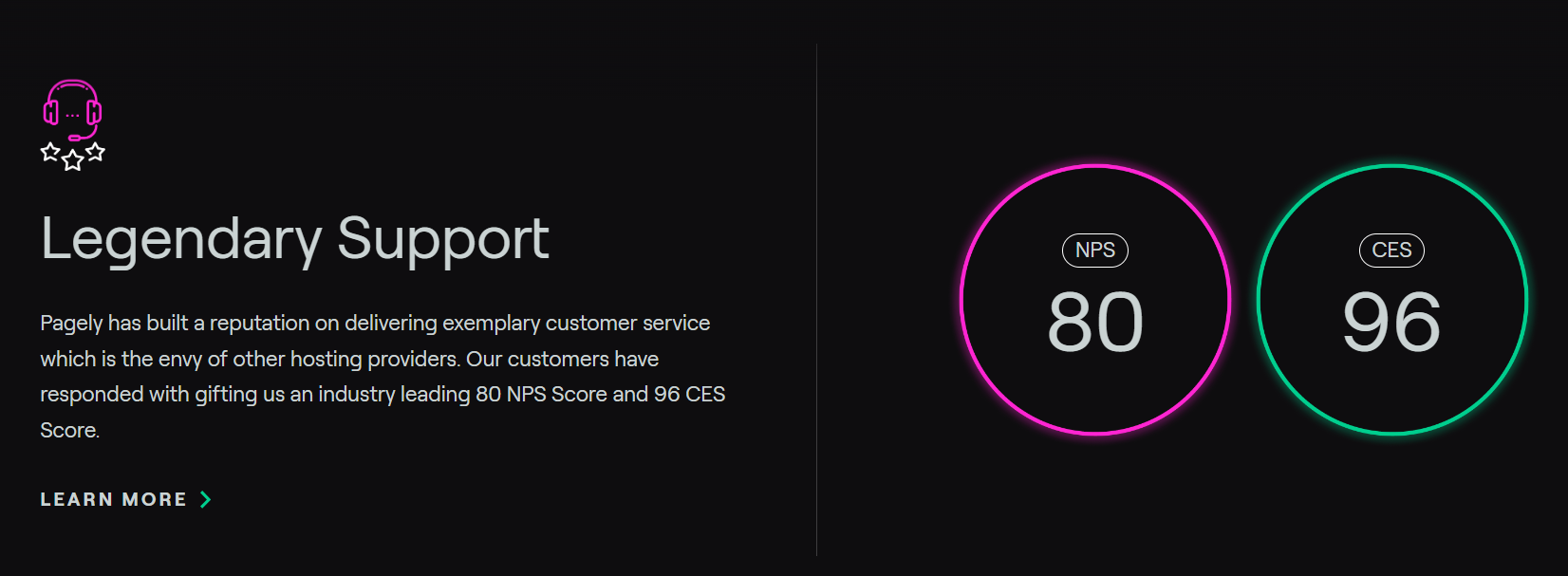
Pagely excels in customer service with its tierless support system, ensuring every issue is handled by a qualified engineer. It offers a variety of support channels, including 24/7 live chat and support tickets, as well as phone support for select plans. The satisfaction ratings are impressive, boasting a 97% customer satisfaction rating and rapid response times, with 81% of cases resolved within two hours.

WestHost, on the other hand, provides solid 24/7 customer support through live chat and offers phone support with both international and toll-free numbers. They have extensive resources like forums, a knowledge base, and a blog for self-help. However, customers report mixed experiences, highlighting delays in addressing complex issues. WestHost does offer a 30-day money-back guarantee, enhancing its appeal to beginners.
Pagely vs WestHost: User feedback
Users highly appreciate this hosting provider for its exceptional reliability and top-notch customer support, often comparing it to having an on-call DevOps team. The platform is praised for its speed, security, and a suite of features designed specifically for WordPress hosting. Many find the management tools intuitive and effective, though some express a desire for improvements in specific areas like the Atomic dashboard and multi-user access. The main criticism revolves around the high cost, which is noted as a barrier for smaller operations, but many users agree the premium price is justified by the service’s quality and reliability.
Users find WestHost to be a reliable hosting provider with minimal downtime and high-quality support. The competitive pricing is appreciated, but many users express frustration with the outdated documentation and the need for customer support intervention for tasks like updating SSL certificates. While the service itself is smooth and hassle-free, the administrative interface and outdated guides significantly detract from the overall user experience.
Pagely vs WestHost: FAQ
Which platform is better suited for hosting WordPress websites?
Pagely is better suited for hosting WordPress websites due to its high-performance configurations, advanced security features, and dedicated WordPress optimizations. It is tailored for businesses with high-demand WordPress needs, offering managed DevOps support and no cap on PHP workers. Westhost also provides WordPress hosting but focuses more on affordability and simplicity, making it suitable for smaller-scale WordPress sites.
Are both platforms suitable for beginners?
Westhost is more suitable for beginners due to its user-friendly control panel, affordability, and straightforward setup process. It offers essential features like free SSL certificates, a free domain with annual plans, and a simple website builder, making it ideal for those new to web hosting. Pagely, on the other hand, targets users with more advanced needs and greater technical expertise, making it less accessible for beginners.
What are the major differences in pricing and value between Pagely and Westhost?
Pagely’s pricing is significantly higher, with plans starting at $199 per month, focusing on high-performance and enterprise-level features. Its value lies in exceptional reliability, advanced security, and managed DevOps support. In contrast, Westhost offers budget-friendly plans starting at $1 per month, with features like a free domain, SSL certificates, and user-friendly tools. While Pagely targets high-end users, Westhost provides great value for individuals and small businesses looking for cost-effective solutions.
Which hosting service offers more scalability options for growing websites?
Pagely offers more extensive scalability options with custom vCPU and RAM configurations in higher-tier plans, elastic scaling through decoupled database resources, and high availability setups. This makes it ideal for large-scale, complex deployments. Westhost also provides scalable VPS solutions at more affordable rates but doesn’t match Pagely’s advanced capabilities for automatic and seamless scaling.
Which service is more suitable for hosting a high-traffic website?
Pagely is more suitable for hosting high-traffic websites due to its dedicated CPU, RAM, and absence of PHP worker limits. It ensures excellent performance with an average response time of 211ms and the capability to handle 1,965 requests per second. Westhost, although reliable, does not match Pagely’s performance standards for high-traffic sites.
What are the differences in the control panels offered by each hosting service?
Pagely uses a custom admin panel designed for advanced functionalities and high-performance WordPress management, suitable for users with moderate to advanced technical skills. Westhost, on the other hand, provides a more traditional cPanel interface, known for its accessibility and ease of use, making it ideal for beginners and users who prefer straightforward navigation and setup.
The making of this blog
We followed a clear, step-by-step process to write and research this article.










